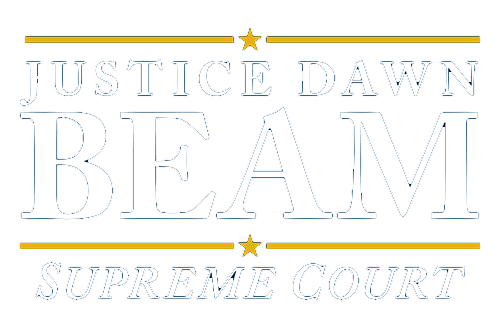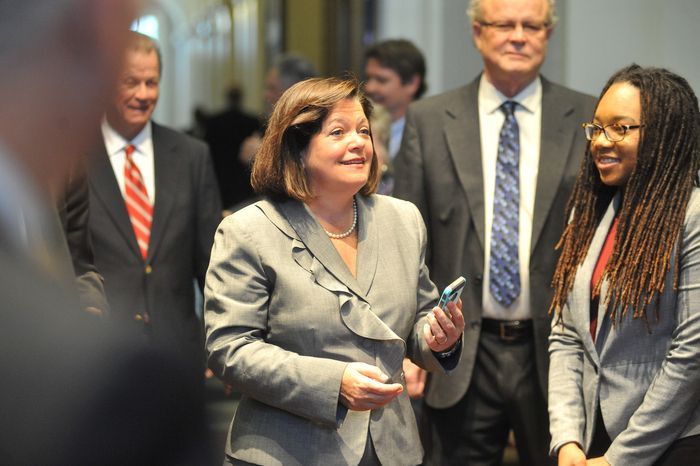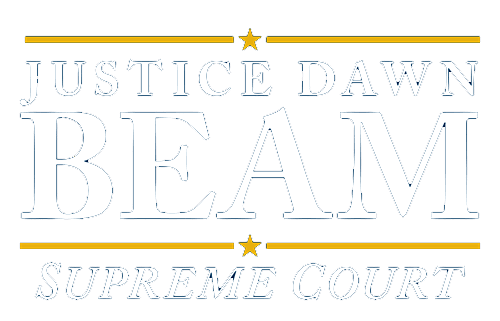
Contact Us
Thank you for contacting us.
We will get back to you as soon as possible.
We will get back to you as soon as possible.
Oops, there was an error sending your message.
Please try again later.
Please try again later.
Justice Dawn Beam
Mississippi Supreme Court
PREPARED WITH EXPERIENCE AND EDUCATION
- Currently serves on the Mississippi Supreme Court where she has been since 2016
- Previously served as 10th District Chancery Judge in Forrest, Lamar, Marion, Pearl River, and Perry Counties
- Served as Lamar County Prosecuting Attorney, Youth Court Prosecutor, Criminal Prosecutor in Justice Court and County Court
- Practiced law for over 20 years representing people, businesses and various entities throughout South Mississippi
- Law degree and Bachelor of Arts degree in Business from the University of Mississippi
PASSIONATE ABOUT IMPROVING ADMINISTRATION OF JUSTICE
- Co-Chairs Supreme Court’s Children’s Justice Commission where she helps lead positive change in Mississippi Child Welfare System.
- Co-Chaired the Supreme Court’s Guardianship and Conservatorship Commission resulting in improved accountability for those charged with protecting the most vulnerable children and adults in Mississippi.
- Member of Supreme Court’s Access to Justice Commission to help those who otherwise would not have access to the Court.
FOCUSED ON FAMILY, COMMUNITY AND SERVICE
- Married to Dr. Stephen Beam; they have five children and one grandchild.
- Member of Sumrall Methodist Church
- Founding Member of the Sumrall Development Foundation
- Member of the Sumrall Lion’s Club
- Member of the Mississippi Bar Association and American Bar Association
NEWS
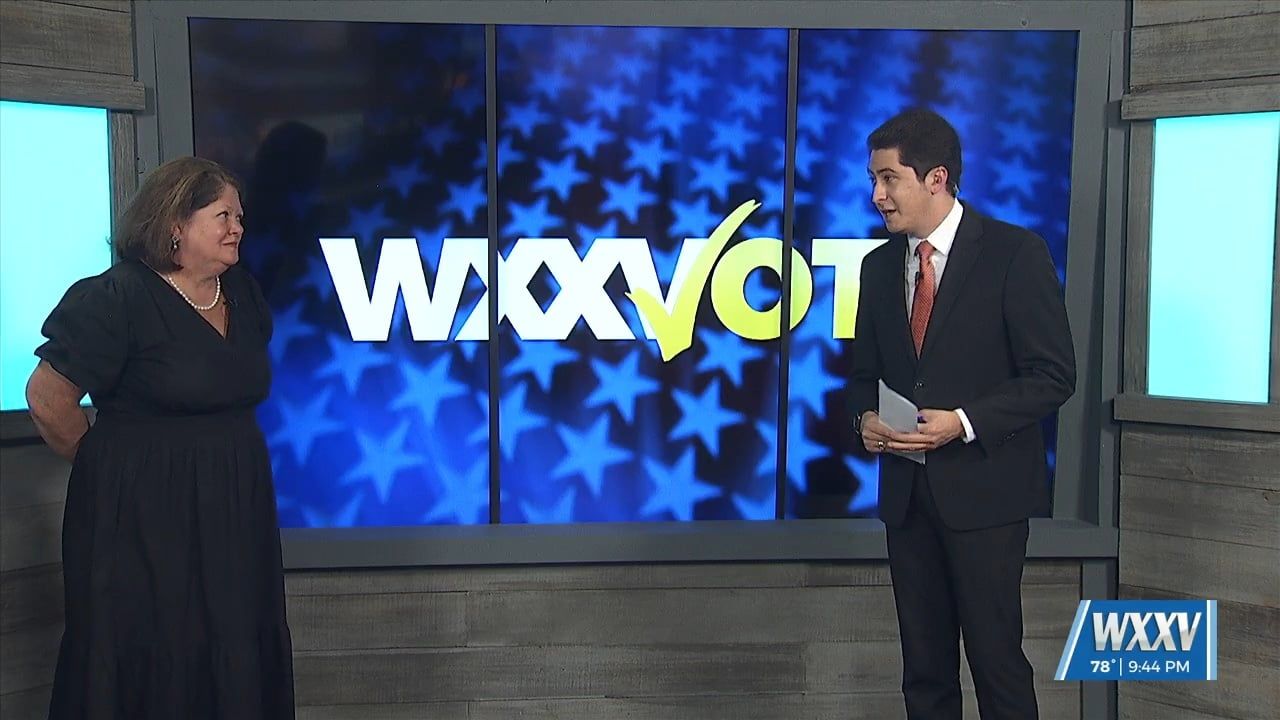
01 Nov, 2024
Another judicial race you’ll see on your ballot Tuesday is that for state Supreme Court District 2, a district that encompasses Southern Mississippi. Two candidates are vying for that seat. Candidate Dawn Beam is in studio to discuss this upcoming election. Source: WXXV - https://www.wxxv25.com/dawn-beam-running-for-state-supreme-court-district-2-speaks-to-wxxv/
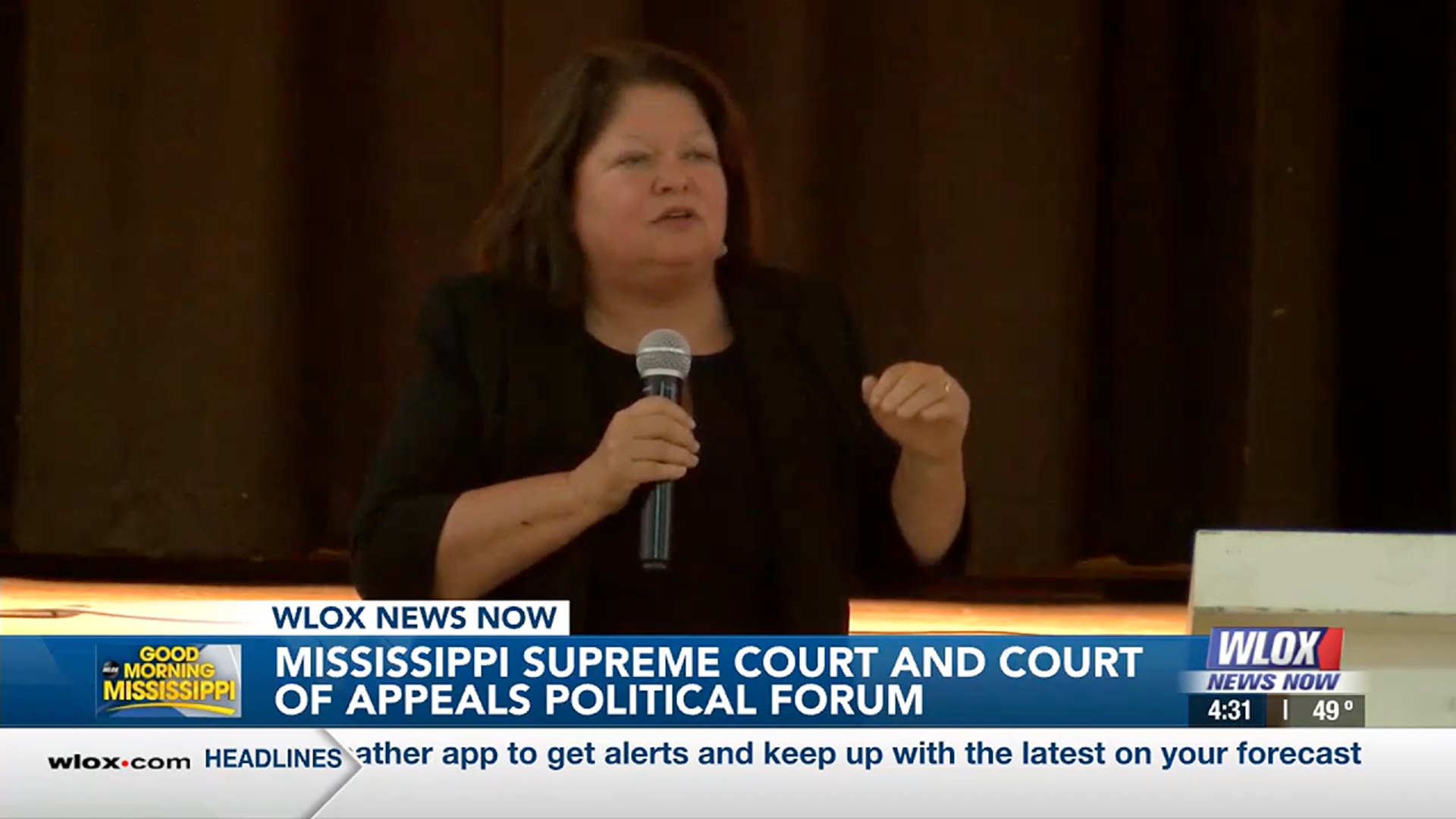
18 Oct, 2024
Elections are right around the corner. Candidates for the Mississippi Supreme Court and Court of Appeals took the podium Thursday night at the NAACP Political Forum in Biloxi. Watch the video here: https://www.wlox.com/video/2024/10/18/naacp-hosts-mississippi-supreme-court-candidates-take-podium/
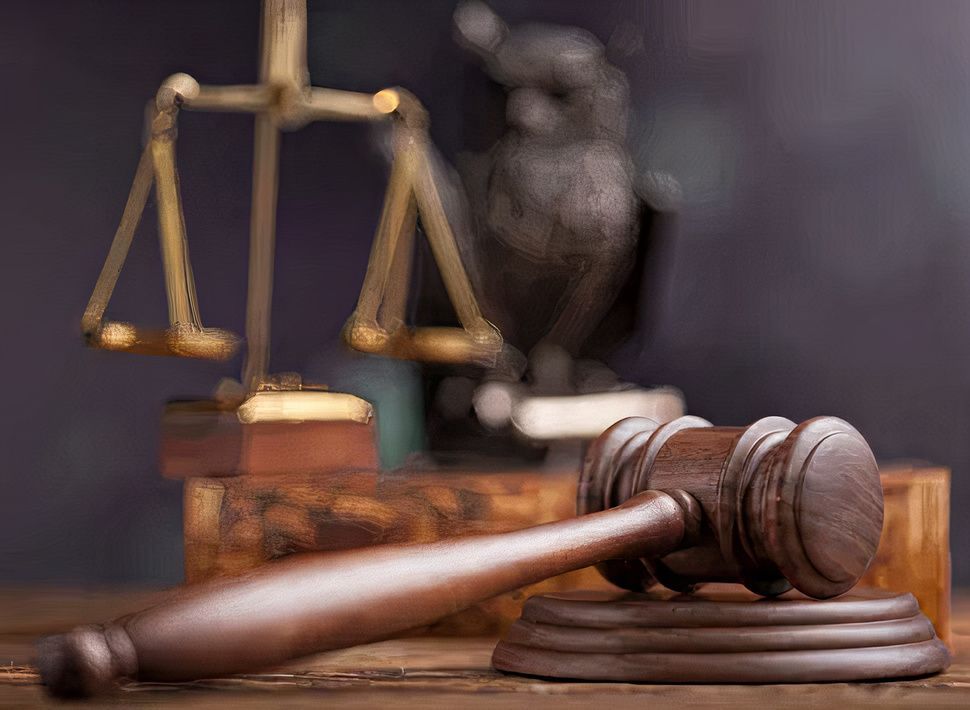
19 Aug, 2024
Mississippi became the 25th state this year to adopt rules of collaborative law, which allows people to sit together at the table to work through their differences in hopes of avoiding what could become contentious court proceedings. Hattiesburg attorney Jennifer Ingram Johnson was elected president of the Mississippi Bar Association but had not yet taken office when she attended a continuing education class in Texas, where she learned about collaborative law. She thought it would be something beneficial to Mississippi, so when she took office she put together an ad hoc committee to study the feasibility of establishing collaborative law in the state. "Divorce doesn't end a relationship," Johnson said. "Divorce changes it, so it's best to preserve all parts of the relationship that you can preserve. Let go of the ones you can't, but there's got to be part of it that continues for the children's sake. If you can go through a collaborative process and reach an agreement, the children come out ahead." Click here to read the full Supreme Court order. Jackson attorney Mark Chinn spearheaded the team that worked on shaping the collaborative law rules. The process began in 2020, and the proposal was submitted to the state Supreme Court in 2022. Although it took several years to bring the effort to fruition, the court voted to support the collaborative law rules, announcing July 26 that they would be added to the state's judicial playbook. Johnson said she is proud of the efforts by Chinn, the committee and others involved in bringing collaborative law to fruition in Mississippi. As an attorney, Johnson became an advocate in court to help one side or the other through the court process. Later, she began mediating domestic cases, which would work toward a resolution of the issue involved without siding with either party. Collaborative law is just another tool to help people settle their differences. Although she learned about collaborative law in a workshop, her interest in the subject and in her other efforts to preserve family integrity stemmed from her own experience in getting a divorce and settling child custody matters. She said she was fortunate to have worked out an amicable solution with her ex-husband and the two were able to co-parent successfully. "This idea was borne out of my own personal experience," Johnson said. "Out of that came the desire to affect how other people experience divorce in Mississippi." Although the full court voted to adopt the new rules, the decision wasn't unanimous. Three justices, including Presiding Justice Leslie King of Greenville, declined to approve the order. “The concern that I had was that it was not necessary," King said in an email. "It could be done under the rules as they presently exist. Why adopt a rule for something that you could already do? I don’t think that it creates anything that’s not already there in previously existing procedural rules." But the justices who voted to adopt the new rules felt it would be a benefit to people who are going through difficult times in their lives. "Oftentimes when parties square off in court, nobody wins," said Justice Dawn Beam of Sumrall, who is an attorney and former chancery judge. "It can be so hurtful to have to put the very worst out about both sides. Any time that we can resolve cases without having to come to that point is always a win for everybody." Beam said the parties can save money by avoiding discovery costs; have less time in court or perhaps none at all; resolve their issues more quickly; and reduce the stress involved in airing personal matters in court. "I don't know of any more stressful time than when you go through the court system for divorces, custodies and things like that," Beam said. The Rules for Collaborative Law take effect Aug. 26. Louisiana and Kentucky adopted similar rules this year, bringing the total to 25 states and the District of Columbia that have collaborative law rules modeled after the American Bar Association's Uniform Collaborative Law Act of 2010. Utah was the first state to adopt collaborative law rules in 2010, followed by Texas and Nevada in 2011. What does collaborative law cover? Some of the issues that may be resolved by using the new rules: marriage, divorce, dissolution, annulment and property distribution child custody, visitation and parenting time alimony, maintenance and child support adoption parentage premarital, marital and post-marital agreements post-order actions, including modifications, enforcements and contempts How collaborative law works Some of the items included in the collaborative law rules: Parties to a family law dispute sign a Collaborative Law Participation Agreement. The agreement requires the parties to forgo court intervention in determining how the dispute should be resolved. The agreement is a binding contract. "Everybody is on even ground," Beam said. "That allows for a lot of trust." A judge cannot order parties to enter into a collaborative agreement. It is a voluntary process in which all the involved parties must agree. The parties must each have their own attorneys but can agree on one set of professionals, experts and investigators who are neutral to the process and share the cost, rather than each party hiring their own. All parties must agree to full disclosure of information that is pertinent to the collaboration process. The information used in the collaboration is confidential and may not be discussed with anyone not involved. The information disclosed is privileged except in rare instances, for example, acts of violence or neglect; documents that are public record; or alleged misconduct by an attorney involved in the process. "The hope is people really can put their cards on the table and do what's best for them and their kids," Beam said. Attorneys for the parties should be aware of violent or coercive tendencies that could be harmful to the collaborative process or the parties involved and take steps, if needed, to protect their clients, including ending the collaborative process, if necessary. The agreement is concluded once the parties agree on the terms of all or part of the conflict or at least one of the parties decides to end the collaboration efforts. If collaborative efforts fail, the parties would have to retain a new set of lawyers to help them litigate the matters they cannot agree on. This is to prevent any conflict of interest by the collaborating attorneys, who would be privy to information that could be used against the other party in the courtroom. The new attorneys cannot work at the same law firm as the collaborating attorneys. This, of course, will make the process more expensive and time-consuming, Beam said. "All the more reason to try to resolve it," Beam said. The state's chancery courts will still have oversight over the cases, which are subject to review once the agreements are filed with the court. "Chancellors will still have that authority," Beam said. "In particular, the court is going to want to make sure that the children are adequately provided for." Some chancellors may decide to approve the filings without meeting with the parties, while others may want to speak with the parties before approving a collaborative agreement, since it is legally binding. "Judges need to approach the case as they see fit," Beam said. "You don't want to take away the importance of their review. Once the judge signs that, it is just as binding (as a litigated case). Invariably conflicts arise, but as long as we have a good order that covers those, everybody just has to rely on that order. Hopefully that will cut down on that conflict." Contact Lici Beveridge at lbeveridge@gannett.com . Follow her on X @licibev or Facebook at facebook.com/licibeveridge . Read the original article here: https://www.clarionledger.com/story/news/local/2024/08/16/mississippi-adopts-rules-for-collaborative-law-in-family-matters/74673881007 /

15 Mar, 2024
Using examples from the Bible and the lessons learned from Hurricane Katrina, Mississippi Supreme Court Justice Dawn Beam issued a challenge to members of the Natchez Rotary Club this week. “God’s plan is for us to make a difference in our world,” she said after sharing the message of Matthew in which Jesus explains “when I was hungry, you fed me; when I was thirsty you gave me drink; when I was in prison, you came to visit me.” “When you serve the least of these, whether it is in Rotary or in the United States or around the world, you are making a difference,” Beam said. Beam pointed out the spirit of Mississippians in the wake of Hurricane Katrina in 2007, “when we weren’t worried if we were black or white or voted blue or red … we just got it done” in calling for a response to the challenges that face the state today. “In Mississippi, just like back in Katrina when the ox was in the ditch and we needed to work … well, sometimes, the ox has been in the ditch so long we don’t even acknowledge it,” she said, explaining that Mississippians are in danger of becoming numb to the challenges that face the state. “When one in four of our kids lives in poverty and 45 percent of our black children live in poverty … when one in five … of our kids go hungry – they are food deprived at some point … because we’re so used to it, sometimes our hearts are not moved to make the change,” she said. Beam said the challenges stretch beyond simply children’s issues. “We could go on and talk about mental health. We could go on and talk about criminal justice reform and how some Black kids in our state almost think it’s a gimme that one day they’re going to end up in prison.” And the time is now for Mississippians to make a change, she said. “Sometimes are hearts are not moved to make the change, but the time is now. It’s our turn to make a difference,” she said. “God gives us talents and we want to be faithful, to use those talents.” Ultimately, Beam said, everyone must acknowledge that he or she will leave a legacy. “In life and death, we all will leave a legacy,” she said. “This parable talks about the goats (and the sheep) and how to act right … “But as we think about Easter, about the blessing of Easter … why not take what your gifts and what your talents are (think about) how you can make a difference?” Instead of being overwhelmed by the challenges in Mississippi or being stalled by focusing on differences, Beam challenged the Rotarians to simply act. “What if in Mississippi we got so busy focusing on our little piece of the mosaic that we forgot what color we are and where we live and all of those things that sometimes tend to divide us? If we get so busy doing all the good that when we back up, we see the incredible change in our state? “I think we can do that.” Read more at: https://www.natchezdemocrat.com/2024/03/15/supreme-court-justice-challenges-rotarians-to-get-states-ox-out-of-the-ditch/
REMEMBER TO VOTE
November 5th
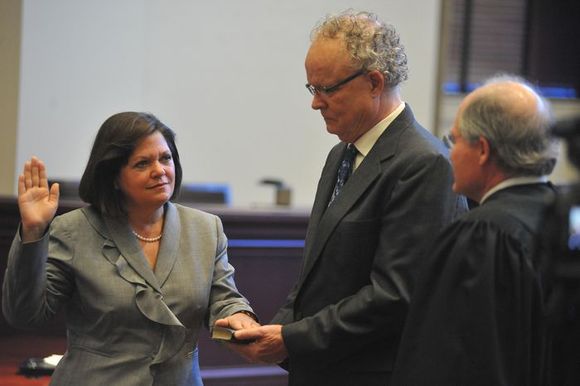
Slide title
Write your caption hereButton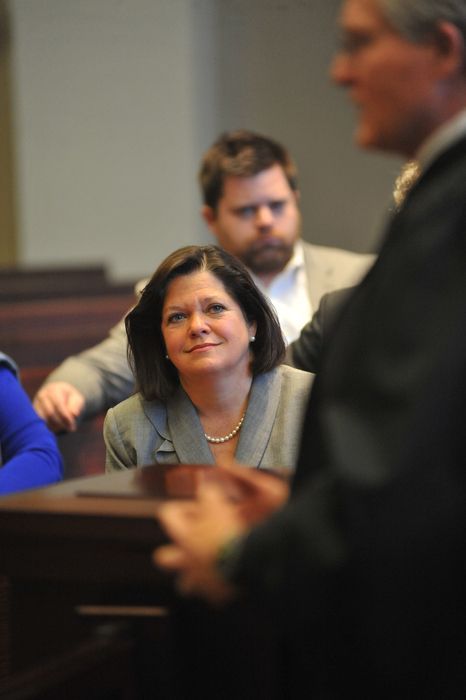
Slide title
Write your caption hereButton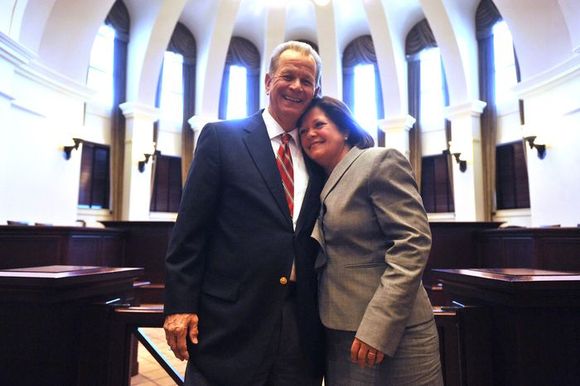
Slide title
Write your caption hereButton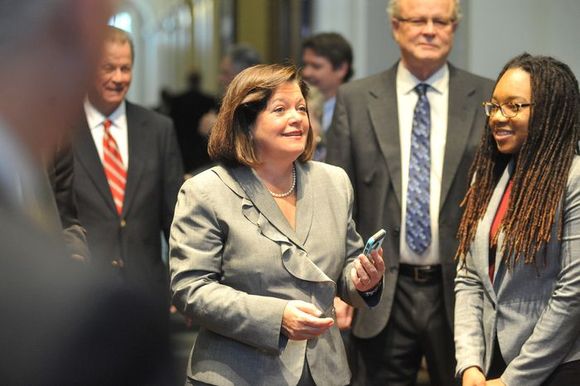
Slide title
Write your caption hereButton
